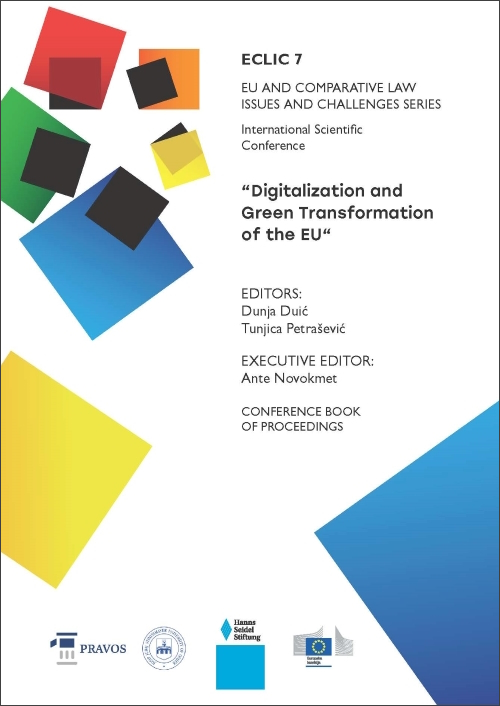COMPARATIVE AND DOGMATIC ISSUES OF HATE SPEECH - TRADITIONAL AND MODERN ACTS OF COMMISSION
DOI:
https://doi.org/10.25234/eclic/27460Abstract
Given that the criminal offense of Public Incitement to Violence and Hatred seeks to protect public order but also certain groups of individuals and limit freedom of speech, the paper provides a comparative legal analysis of this criminal offense through Anglo-Saxon and continental law and especially refers to the law of EU and EU Member States. The paper analyzes some dogmatic principles of criminal law that explain the conditions when Public Incitement to Violence and Hatred can be committed. Especially, the development of modern technology and modern way of communication and influence considered in the paper the possibility to affect different groups of people through incitement to hate speech. Hate crime precedes different riots that in times of social turbulence can lead to different criminal offenses that affect the economic, cultural, and environmental positive development of society. The paper gives a broader insight into the way this criminal offense can be committed, especially taking into account the act of committing Public Incitement to Violence and Hatred, connecting it to forms of committing this criminal offense in a “non-public“ way through the traditional act of commission or using modern technologies (Social Networks, AI,...) and the dogmatic issue of special intent.
Downloads
Published
How to Cite
Issue
Section
License
Copyright (c) 2023 Ivan Vukušić

This work is licensed under a Creative Commons Attribution-NonCommercial 4.0 International License.
Authors retain the copyright on the papers published in the Journal, but grant the right of first publication to the Journal. Papers accepted for publication or already published in ECLIC of the Faculty of Law in Osijek may be published by the author(s) in other publications only with proper notice of its previous publication in ECLIC.


